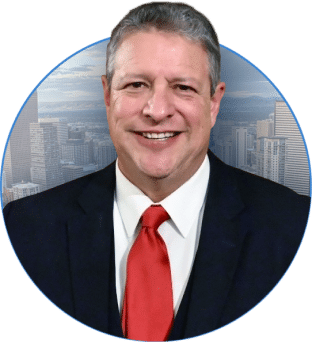Don’t Talk to Police Without Your Attorney
Last updated Thursday, October 12th, 2023
Quick Legal Tip: Don’t talk to the Police without Your Attorney.
If you are a suspect in a crime and get a call from the police, listen to this simple but powerful rule: Don’t talk to the police without your attorney. Speaking to the police without an attorney, even if you’re entirely innocent, carries no benefits but potentially serious consequences.
Don’t talk to the police may seem like a piece of obvious advice, but ignoring it can have life-changing consequences. Let’s dig into why you should always have legal representation when dealing with police.
The Right to Remain Silent
The Fifth Amendment to the United States Constitution grants individuals the right to remain silent and not incriminate themselves. This fundamental legal protection serves as a critical safeguard against self-incrimination. Without an attorney, you risk saying something that can be used against you. Even well-intentioned, harmless comments can be twisted or manipulated to your disadvantage.
The Presumption of Guilt
For this to make sense, it’s crucial to recognize that the police have the training to gather evidence to build a case. When the police question you, the officers may already have suspicions or consider you a person of interest. A conversation without your lawyer may unknowingly reinforce their doubts, leading to your becoming a primary suspect.
Complex Legal Issues
Criminal law is complicated and multilayered. A regular citizen may have little knowledge of legal principles, evidence, and procedure. Conversely, an attorney is skilled at legal stuff and can help you navigate complex situations, ensuring you do not wrongfully reveal information about yourself that can harm your case. In light of this, don’t talk to the police becomes a basic tenet.
Interrogation Tactics
Police officers are trained in devious interrogation tactics to gather information from vulnerable individuals. They may use psychological pressure, misleading statements, or even intimidation to get you to talk. An experienced attorney can shield you from these tactics and protect your rights.
Protecting Your Interests
Your attorney’s primary objective is to protect your interests. They will guide you on what to say and what not to say during interactions with the police, ensuring that nothing can get taken away from you and that your best interests are always protected.
Legal Consequences
When you speak with the police without an attorney, you could unintentionally admit to something that could lead to criminal charges or affect your defense strategy. Once you say something, it’s tough to withdraw or modify your statement, which could compromise your legal standing.
Unintended Implications
In many cases, individuals who speak to the police without an attorney present may not realize the consequences of their words. A seemingly innocent statement may be misconstrued, taken out of context, or used against you in ways you never anticipated.
The Right to an Attorney
The right to an attorney is a fundamental right, so exercising this right is not an admission of guilt. It is a smart and sensible decision to protect your rights and receive solid legal advice before talking to the cops.
Whether you are a suspect, a witness, or someone simply providing information to law enforcement, never forget – don’t talk to the police without an attorney present. Simple but crucial precautions can prevent legal complications, protect your rights, and help you navigate complicated criminal laws. Be sure to get an attorney before you talk to the police. It could change your life.

